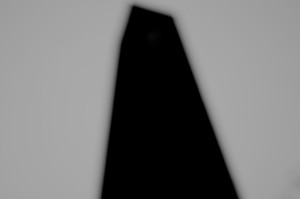Words for Clayton, Spoken Lastly
i just might be, in actuality, the turning away from objects lessons redactions phenomena and much else that attempts to balance the act
as there is always a tub in an empty scene, so will no one climb in unless there’s a reason to move from where they are to where they’re not
we might call these images: hours
what happened to us is perfect and yet it continues in the way water does not experience the subject at hand
don’t presume context when you are standing in this desert, you will only be sent back home
Catherine’s Daily Painting
a copper bullet enters the root as a double abandoned in
amongst its splitting
who cares for portraits of RIVERS
they were always torn apart
and when i stand on earth as deliberate as possible
i imagine an angel sitting on a lit up radio
young hidden obtuse like a violin
Omar and the Order of Bees
disturbing the earth’s commandments like a quixotic wife
should I say wife or should I say the weather remains
have patience with me as you would permit history to restore the cult of men
today everyone’s mask is a bird
in another time
we’ll sacrifice the place that kills us
The Surety of a Disembodied Poesy
Poetry’s anatomy circumvents transcendency—akin to the skulking hyena and its distorted doppelganger affronted by Rimbaud’s devil. The Book being a body. The Word being an alchemic blood. Language as a house. Poetics as Dasein. Though, a surrogated uncovering might suspend material declinations. The Body dies—does the Poem? A crisis confronts the Poet. You will expire but will your work? Uncovering may prolong the Form but Form is an historical machine, metamorphosinguntodeath. “And soon all of us will sleep under the earth, we/who never let each other sleep above it.”1 Immortality of the Name (Achillesian)—the amaranthine calling and the “called back” (Dickinsonian)—are we with myth? Or, is a disembodied poesy also a historicity of incalculable prolongation? The Book transmogrified into Question. The Word being a wing. Language as a home. Poetics as a “handshake.”2 Poesy as response.
Out of the void a new form will be born in an immense poem.
2 Paul Celan
 Lucas M. Rivera lives in Oakland, CA. He co-edits Called Back Books w/ the poet Sharon Zetter and is studying with the philosopher Dr. Marek Bielecki. His work has appeared in Witness, Ragazine, comma,poetry, Hidden City Quarterly, and Textsound. Forthcoming poetry will appear in Upstairs at Duroc.
Lucas M. Rivera lives in Oakland, CA. He co-edits Called Back Books w/ the poet Sharon Zetter and is studying with the philosopher Dr. Marek Bielecki. His work has appeared in Witness, Ragazine, comma,poetry, Hidden City Quarterly, and Textsound. Forthcoming poetry will appear in Upstairs at Duroc.